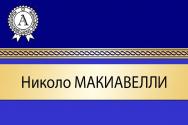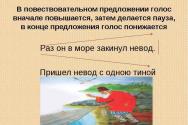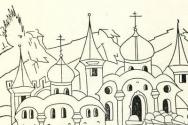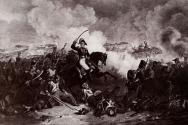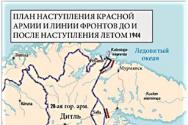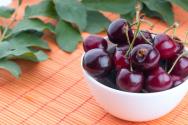Conversation on the day of Belarusian writing in the senior group. Lesson summary “Slavic writing”
Two brothers, Cyril and Methodius,
Thank you, we want to tell you
For the letters that we really need
To teach us to read.
The Day of Slavic Literature and Culture, dedicated to the day of remembrance of the creators of the Cyrillic alphabet - the holy Equal-to-the-Apostles brothers Cyril and Methodius, was revived in Russia in 1991. In Moscow, a monument to Cyril and Methodius was unveiled on Slavyanskaya Square. At the foot of this monument there is an Unquenchable Lamp - a sign of eternal memory. Since then, every year on May 24 we honor Cyril and Methodius. This is the only church and state holiday in our country.
Teachers of the older group introduced the children to the history of this memorable date.
The week of Slavic writing was educational and interesting. The teachers instilled in the children a love of their native word, native language, national history, in an accessible form, talked about the activities of the brother educators, their invaluable contribution to the culture of the fraternal Slavic peoples. We explained to the children the concept of “ Slavic world", showed examples of common origins, similarity of language and traditions of related ethnic groups.
Culture is what justifies the existence of a people and a nation, it is the shrine of the nation, which it collects and preserves.
Knowledge of your native culture will inevitably lead to love for it and teach you to appreciate it. In our time, when there is massive propaganda of foreign culture, it is especially important to remember and know your Russian culture and its history. Therefore, we turn to the origins of our culture, paying tribute to the first teachers, the Holy Equal-to-the-Apostles Brothers Cyril and Methodius, who brought writing to the Slavic land and introduced the many millions of Slavic peoples to world civilization and world culture.
The works of these great educators became the common property of all Slavs and laid the foundation for their moral and mental development. So great is the merit of the brothers Cyril and Methodius in the history of enlightenment and raising the general culture of the Slavic peoples.
To better understand and experience the historical culture of your native country, you can plunge into those distant Old Slavic times and “visit” the Slavs.
The children of the older group, together with their teacher Valentina Aleksandrovna Ponomareva, dressed up in Slavic costumes and became not guests, but heroes of the exciting entertainment “What Slavs We Are.” During the educational conversation, dear children, we heard a Slavyanka’s story about Holy Rus', about distant times...
Once upon a time there lived good fellows, beautiful, beautiful maidens. They knew how to plow, mow, and chop houses. They spun and weaved, they worked in a forge, with clay, and they knew how to work with wood. They were good hunters and fishermen. They could sing and dance in circles. But our ancestors did not know how to read, did not know how to read books or write letters...
Poems, riddles, presentation “What kind of Slavs we are”, word games, round dance games, and folk songs near a Russian birch tree, they helped the children visit distant historical times and once again remember the famous works of the brothers Cyril and Mythodiy, the founders of Slavic writing.
Such non-traditional work easily and naturally introduces children to the history of Russia, preserves and passes on cultural and historical experience.
Educator 1. In wide Rus' to our mother
The bells ring out
Today the brothers Cyril and Methodius
They are glorified for their efforts.
Educator 2. Remember Cyril and Methodius,
Glorious Brothers Equal to the Apostles
In Belarus, Macedonia,
In Poland, the Czech Republic and Slovakia.
Educator 1. They praise the wise brothers in Bulgaria,
In Ukraine, Croatia, Serbia.
Educator 2. All the peoples who write in Cyrillic,
What have been called Slavic since ancient times,
They glorify the feat of the first teachers,
Christian enlighteners. Children:
1. 1. Fair-haired, gray-eyed,
Bright in face and glorious in heart,
Drevlyans, Rusichi, glades,
Tell me, who are we?
We are Slavs! (in unison)
2. 2. Your article is all beautiful,
All relatives and all similar,
We are now called Russians,
Since ancient times, who are we?
We are Slavs! (in unison)
3. 3. We honor white birch trees,
We love our free songs,
We are called Masha, Yulia, Tanya,
Tell me, who are we?
We are Slavs! (in unison)
Song "Motherland".
Educator 1. Goy, you are our glorious guests, kind, dear children, I will tell you about Holy Rus', about distant times, Once upon a time there lived good fellows, beautiful, beautiful maidens! They knew how to plow, mow, and chop down houses. But our ancestors did not know how to read, did not know how to read books or write letters. At the same time, there lived two brothers: oh, and they were wise. The eldest is Methodius, and the youngest is Cyril. They dreamed of writing books that were understandable to the Slavs, and for this they had to come up with Slavic letters.
Children:
1. 1. In a narrow monastery cell,
In four blank walls
About the land about ancient Russian
The story was written down by a monk.
2. 2. He wrote in winter and summer,
Illuminated by dim light.
He wrote year after year
About our great people.
Educator 2. After a while, the brothers created an alphabet, which they called Cyrillic. Each letter had its own name: “Az”, “Buki”, “Vedi”. The names of the letters were supposed to remind people of words that should not be forgotten: “good”, “live”, “earth”, “people”. (show pictures of letters).
The boy Vanya looks at the Old Slavonic letters and admires them:
- Oh, what wonderful letters!
Beautiful, apparently ancient!
They were once important
Now no one needs them anymore.
Letters run in to the music (children have crowns with Cyrillic letters).
Vanya is surprised: “Who are you?”
Letters:
1. I am the letter Izhitsa,
2. I am fita,
3. I am xi,
4. I am psi
5. I am yat.
Vanya: You are beautiful and you smell of antiquity,
But our alphabet has become different.
I am very sorry and very sad,
That your letters have disappeared from ours.
Letters:
1. What do you mean disappeared?
That we are not important?
Don't you need old things?
2. A kerosene lamp is also old,
But you didn't throw it away.
Vanya: “It was my grandmother’s mother who, in the light of this lamp, wrote letters to her great-grandfather at the front.
Letters:
3. 1. These things have become rare,
This is a memory of our ancestors.
4. Well, we are the same memory,
We cannot be forgotten and we cannot be abandoned.
Pushkin, Lermontov wrote us,
And the light of the letter illuminated our path.
5. 2. We live in ancient books,
And not only beautiful in appearance,
We keep the Orthodox spirit,
We will guard our church.
Educator 1. Holy Scripture The Bible is the books of the Old and New Testaments. They indicate how to live, what it means Orthodox Christian be.
They leave.
Song "God loves all people."
Children:
1. 1. In Russia, in Africa and in England.
They read the Gospel with joy.
There is no better book in the world -
All children should know about this.
And for those who love the word of God,
The Lord will always help you in everything.
I have a headache!
Instead of “bun” it came out “beech”
Instead of "Murka" it came out as "flour".
This is torment, so much torment!
I'm not good at learning.
I'm not crying, I'm strengthening myself
I often pray to the Lord.
Song "Put Your Stone Down"
1. 1. Mother of God! Most Pure Virgin!
You taught the Christ child
Inspire us to do good deeds -
The sounds of letters came to our lips.
2. 2. Enlighten, O Mother of God, the peoples,
Who don’t even have books yet,
Give them faith, love and freedom,
And the teachings of Christian light.
3. 3. (Prayer “Hail, Virgin Mary”)
Mother of God, Virgin, Hail, Gracious Mary, the Lord is with You: blessed are You among women, and blessed is the fruit of Your womb, for You have given birth to the Savior of our souls.”
Educator 2. Rus' is rich in talents.
Rus' is strong in talents.
If the boys sing,
So she will live.
Song "Spring".
Riddles: Not a bush, but with leaves.
Not a shirt, but sewn,
Not a person, but a story (book).
Black Ivashka,
Wooden shirt.
Where will it take place -
There remains a trace (pencil).
On the ABC book page
Thirty-three heroes.
Sages - heroes
Every literate person knows the alphabet.
Black, beautiful, all mute from birth.
They'll stand in a row and they'll start talking. (letters)
Song "Vesnyanka"
Educator 1. Now meet the modern alphabet (Two guys bring out a poster with the alphabet).
1. 1. Everyone needs letters,
Letters are important to everyone
We form a word from them,
And from the word there will be speech!
People wouldn't be able to
If there were no letters,
There would be no communication.
3. 3. Two brothers Cyril and Methodius,
We want to say thank you
For the letters that we really need,
Educator 1. In wide Rus' to our mother
The bells ring out
Today the brothers Cyril and Methodius
They are glorified for their efforts.
Educator 2. Remember Cyril and Methodius,
Glorious Brothers Equal to the Apostles
In Belarus, Macedonia,
In Poland, the Czech Republic and Slovakia.
Educator 1. They praise the wise brothers in Bulgaria,
In Ukraine, Croatia, Serbia.
Educator 2. All the peoples who write in Cyrillic,
What have been called Slavic since ancient times,
They glorify the feat of the first teachers,
Christian enlighteners. Children:
1. 1. Fair-haired, gray-eyed,
Bright in face and glorious in heart,
Drevlyans, Rusichi, glades,
Tell me, who are we?
We are Slavs! (in unison)
2. 2. Your article is all beautiful,
All relatives and all similar,
We are now called Russians,
Since ancient times, who are we?
We are Slavs! (in unison)
3. 3. We honor white birch trees,
We love our free songs,
We are called Masha, Yulia, Tanya,
Tell me, who are we?
We are Slavs! (in unison)
Song "Motherland".
Educator 1. Goy, you are our glorious guests, kind, dear children, I will tell you about Holy Rus', about distant times, Once upon a time there lived good fellows, beautiful, beautiful maidens! They knew how to plow, mow, and cut down houses. But our ancestors did not know how to read, did not know how to read books or write letters. At the same time, there lived two brothers: oh, and they were wise. The eldest is Methodius, and the youngest is Cyril. They dreamed of writing books that were understandable to the Slavs, and for this they had to come up with Slavic letters.
Children:
1. 1. In a narrow monastery cell,
In four blank walls
About the land about ancient Russian
The story was written down by a monk.
2. 2. He wrote in winter and summer,
Illuminated by dim light.
He wrote year after year
About our great people.
Educator 2. After a while, the brothers created an alphabet, which they called Cyrillic. Each letter had its own name: “Az”, “Buki”, “Vedi”. The names of the letters were supposed to remind people of words that should not be forgotten: “good”, “live”, “earth”, “people”. (show pictures of letters).
The boy Vanya looks at the Old Slavonic letters and admires them:
- Oh, what wonderful letters!
Beautiful, apparently ancient!
They were once important
Now no one needs them anymore.
Letters run in to the music (children have crowns with Cyrillic letters).
Vanya is surprised: -Who are you?
Letters:
1. I am the letter Izhitsa,
2. I am fita,
3. I am xi,
4. I am psi
5. I am yat.
Vanya: You are beautiful and you smell of antiquity,
But our alphabet has become different.
I am very sorry and very sad,
That your letters have disappeared from ours.
Letters:
1. What do you mean disappeared?
That we are not important?
Don't you need old things?
2. A kerosene lamp is also an old thing,
But you didn't throw it away.
Vanya: - It was my grandmother’s mother who, in the light of this lamp, wrote letters to her great-grandfather at the front.
Letters:
3. 1. These things have become rare,
This is a memory of our ancestors.
4. Well, we are the same memory,
We cannot be forgotten and we cannot be abandoned.
Pushkin, Lermontov wrote us,
And the light of the letter illuminated our path.
5. 2. We live in ancient books,
And not only beautiful in appearance,
We keep the Orthodox spirit,
We will guard our church.
Educator 1. Holy Scripture The Bible is the books of the Old and New Testaments. They indicate how to live, what it means to be an Orthodox Christian.
They leave.
Song "God loves all people."
Children:
1. 1. In Russia, in Africa and in England.
They read the Gospel with joy.
There is no better book in the world -
All children should know about this.
And for those who love the word of God,
The Lord will always help you in everything.
I have a headache!
Instead of “bun”, it came out “beech”,
Instead of "Murka" it came out as "flour".
This is torment, so much torment!
I'm not good at learning.
I'm not crying, I'm strengthening myself
I often pray to the Lord.
Song "Put Your Stone Down"
1. 1. Mother of God! Most Pure Virgin!
You taught the Christ child
Inspire us to do good deeds -
The sounds of letters came to our lips.
2. 2. Enlighten, O Mother of God, the peoples,
Who don’t even have books yet,
Give them faith, love and freedom,
And the teachings of Christian light.
3. 3. (Prayer “Hail, Virgin Mary”)
Mother of God, Virgin, Hail, Gracious Mary, the Lord is with You: blessed are You among women, and blessed is the fruit of Your womb, for You have given birth to the Savior of our souls.”
Educator 2. Rus' is rich in talents.
Rus' is strong in talents.
If the boys sing,
So she will live.
Song "Spring".
Riddles: Not a bush, but with leaves.
Not a shirt, but sewn,
Not a person, but a story (book).
Black Ivashka,
Wooden shirt.
Where will it take place -
There remains a trace (pencil).
On the ABC book page
Thirty-three heroes.
Sages - heroes
Every literate person knows the alphabet.
Black, beautiful, all mute from birth.
They'll stand in a row and they'll start talking. (letters)
Song "Vesnyanka"
Educator 1. Now meet the modern alphabet (Two guys bring out a poster with the alphabet).
1. 1. Everyone needs letters,
Letters are important to everyone
We form a word from them,
And from the word there will be speech!
People wouldn't be able to
If there were no letters,
There would be no communication.
3. 3. Two brothers Cyril and Methodius,
We want to say thank you
For the letters that we really need,
In Russia, the Day of Slavic Literature is celebrated annually in May. In , as part of patriotic education and expanding the historical knowledge of children, a week of Slavic writing is held, in accordance with the Federal State Educational Standard for Education and the recommendations of the program “From birth to school.” This week the teacher talks about the emergence of writing, Cyril and Methodius, and introduces children to Slavic literature and games. The result of the week is the entertainment “Day of Slavic Writing”, where children consolidate their acquired knowledge. You will find a description of conversations with children and fairy tales of Slavic peoples in the appendix to the plan “Thematic week “Week of Slavic Literature”.
Social and communicative development
Children prepare a report on genealogy, find out what the colors on the Russian flag mean, and discuss the story “How the chick learned to write,” which contributes to social and communicative development.
Cognitive development
In the field of cognitive development, a presentation “How people learned to write”, experiments “Natural Magnifying Lens” and “Two is More Fun”, making a model “Spring in the Forest”, observing potatoes in the garden are planned.
Speech development
Older preschoolers learn to answer questions correctly and solve problematic situation“What would happen if people never learned to write?” An adult offers games and exercises to familiarize children with sentences, sound words, etc., solving problems of speech development.
Artistic and aesthetic development
In the area of artistic and aesthetic development, it is planned to sing familiar folk songs, sculpt and design according to design, and draw “Artists are magicians” to develop the ability to mix colors.
Physical development
In the field of physical development, the teacher considers introducing the games of the Slavic peoples, repeat the rhymes. To form a habit of healthy image life, a field of miracles “Products for Health” is planned, conversations about the daily routine.
Check out a fragment of the theme week
Monday |
|||||
| OO | Cognitive development | Speech development | Physical development | ||
| 1 p.d. | Homemade preparations “My ancestry”. Goal: expand ideas about family ties. | Viewing the multimedia presentation “How people learned to write.” Goal: to introduce children to the emergence of writing, to introduce them to socio-cultural values. | Problem situation “What would happen if people never learned to write.” Goal: teach to think outside the box. | Consideration of the album “Folk Crafts”. Goal: consolidate knowledge about different types of painting. | Introducing the Slavic game “Slow down.” Goal: clarify the rules of the game. |
| Pro- boom | Conversation “What do the colors of our flag mean.” Goal: to consolidate knowledge about state symbols. | Exercise “Find a toy.” Goal: to develop spatial perception while moving. | Conversation “How to answer a question correctly.” Goal: to form a culture of speech. | Asphalt drawing competition “My Favorite Fairy Tale”. Goal: to consolidate ideas about fairy tales and their heroes. | P.i. at the School of Ball. Goal: to consolidate children’s ability to perform different actions with the ball, develop coordination of movements, eye, and dexterity. P.i. "Color Ant" Goal: to please children. |
| OD | |||||
| 2 p.d. | A teacher's story about the holiday "Day of Slavic Literature." Purpose: to provide information about Cyril and Methodius, to expand the historical knowledge of children. | Cognitive and research activity “Natural Magnifying Glass”. Goal: Show children a way to look at small objects without a magnifying glass. | Conversation “What are myths and legends.” Goal: to introduce new literary genres. | Developmental design “Various buildings”. Goal: to teach children to vary images of objects in their imagination. | Independent games with physical education equipment. Goal: to cultivate discipline and respect for other players. |
Tuesday |
|||||
| OO | Social and communicative development | Cognitive development | Speech development | Artistic and aesthetic development | Physical development |
| 1 p.d. | Didactic game “Who needs this?” Goal: to consolidate children’s ideas about objects and their use in labor processes. | Getting to know Slavic folk games. Goal: to introduce children to Russian culture. | Game "Telephone conversation". Goal: develop the ability to correctly express your thoughts. | Repetition of Russian folk dances. Goal: to please children. | Conversation “Muscles and their meaning.” Goal: to expand children’s understanding of their body. |
| Pro- boom | Washing toys on the veranda. Goal: to develop accuracy and conscientiousness. | Observations of potatoes in the garden. Purpose: to draw conclusions that sprouted potatoes produce early shoots. | Game “Who can name the most?” Goal: enrich the vocabulary. | Di. "Artists are magicians." Goal: to show skills in working with watercolors on wet paper, pouring one paint into another and obtaining new colors and their shades. | P.i. "The Bear and the Bees." Goal: to develop the ability to jump onto a hill. P.i. "Obstacle course" Goal: continue to teach children to jump on two legs while moving forward; improve skills of climbing under arches; improve coordination of movements. |
| OD | |||||
Software tasks: introduce children to the holiday of Slavic writing, with Saints Cyril and Methodius. Expand children's understanding of cultural heritage our people. Develop Creative skills, imagination, attention, memory. Promote the development of interest and love for the book.
Materials: photo to Cyril and Methodius, slides depicting Latin letters, Old Church Slavonic alphabet, modern alphabet.
Progress of educational activities.
Teacher
Not everyone knows what today
We celebrate the day of Cyril and Methodius.
For those who hear their names for the first time,
Let's begin this long story...
Across our wide Rus', mother,
The bells ring out.
Now the brothers Saints Cyril and Methodius
They are glorified for their efforts.
Remember Cyril and Methodius,
Glorious brothers equal to the apostles,
In Belarus, Macedonia,
In Poland, the Czech Republic and Slovakia.
The wise brothers are praised in Bulgaria,
In Ukraine, Croatia, Serbia.
All the peoples who write in Cyrillic,
What have been called Slavic since ancient times,
They glorify the feat of the first teachers,
Christian enlighteners.
Today we will talk about our history, about the emergence of Slavic writing. Every year on May 24, Russia celebrates the Day of Slavic Literature and Culture. A nation, people, and state cannot live without culture, literacy, and writing.
Writing is a real treasure that man has mastered.
So in ancient times, people exchanged information by sending each other various objects. It turned out cumbersome and not particularly clear. When people realized that exchanging message objects was a troublesome task, they began to draw these objects.
Such images were found on the walls of caves where ancient people once lived. These are the first steps of man towards the creation of writing. Gradually, people began to replace drawings with symbols.
Then Tsar Michael summoned two learned brothers - Cyril and Methodius, and the Tsar persuaded them and sent them to the Slavic Land.
The brothers were famous for their learning, they knew many languages, so it was they who were entrusted with such a difficult task - the creation of the alphabet. This is how the Slavic alphabet appeared, which later became known as the Cyrillic alphabet (in honor of Constantine, who, having become a monk, received the name Kirill). It has 43 letters.
Think, guys, what they could write in Rus'. This material is from a tree - a symbol of Russia. That's right, this is birch bark, which is called "birch bark" (showing birch bark). To prepare birch bark, you need to clear the future page of hard bark, straighten it, and dry it. The pointed end of a stick (showing sticks) - it is called a “writing”, scratches the letters, and with the blunt end you can erase an accidental mistake. Such a letter was called a birch bark letter. During excavations, archaeologists find letters or letters written on birch bark that are more than 800 years old. People have always needed literacy at all times. What was written has been preserved forever. The light birch tree seemed to remind people:
- Learning is light and ignorance is darkness.
Birch is the favorite tree of the Slavs.
You and I, guys, are Russian people, Slavs. The Slavic alphabet is called the Cyrillic alphabet after Saint Cyril, Equal to the Apostles, who compiled this alphabet and created writing for the Slavic peoples. Saint Cyril and his holy brother Methodius are called teachers of the Slavs. Now there are 33 letters in the Russian language.
So let us praise these letters!
Let them come to the children.
And let him be famous
Our Slavic alphabet!
Puzzles
1.Black, crooked, all mute from birth,
They'll stand in a row and they'll start talking now. (Letters)
2. I know everything, I teach everyone,
But I myself am always silent.
To make friends with me -
We need to learn to read and write. (Book)
3. Wooden Ivashka
All my life in one shirt,
It will pass along the white field -
Every trace will understand him. (Pencil).
4.Steel skate
Runs across a white field,
Leaves black traces behind itself. (Pen, wrote).
5. There is a house.
Whoever enters it will acquire intelligence. (School).
6.Black birds
On every page.
They are silent, waiting,
Who will read them? Letters.
7. Either I’m in a cage, then I’m in a line.
Be able to write about them!
You can too. draw.
What am I?....(Notebook)
Wise thoughts are preserved in Russian proverbs.
*A primer is a stepping stone to wisdom.
*Gold is mined from the earth, and knowledge is obtained from books.
*A book is for the mind what warm rain is for seedlings.
*A mind without a book is like a bird without wings.
*An illiterate person is like a blind person, but a book opens his eyes.
Thanks to the creators of the Slavic alphabet, Cyril and Methodius, the Slavic peoples became literate and learned to read and write. And now on this day, May 24, we celebrate the “Day of Slavic Writing”. Do you think it is difficult to write such letters? Do you want to try writing Old Church Slavonic letters?
Didactic game “Collect the word”

